Did you know that over 60% of homeowners encounter setbacks with residential fence installation—even with experienced contractors? If you’ve started your own fence project or are raring to boost your home’s value, you’re not alone. Installing a new fence can feel overwhelming with so many options and potential pitfalls, from post hole mishaps to zoning headaches. This guide gives you clear solutions, cost breakdowns, and insider tips for a hassle-free fence installation with lasting curb appeal.
Did You Know? Over 60% of Homeowners Encounter Common Residential Fence Installation Setbacks
Many homeowners dive into residential fence installation expecting a quick improvement in privacy, security, and aesthetics . The reality? Unexpected challenges—like poorly set fence posts or running afoul of property lines—can quickly derail even the best-intentioned fence build. Issues with chain link fences sagging, privacy fence slats warping, or local restrictions on fence height all add layers of complexity. Fortunately, these setbacks are fixable, and with the right approach, you can avoid costly mistakes and unleash the full potential of your fence project.
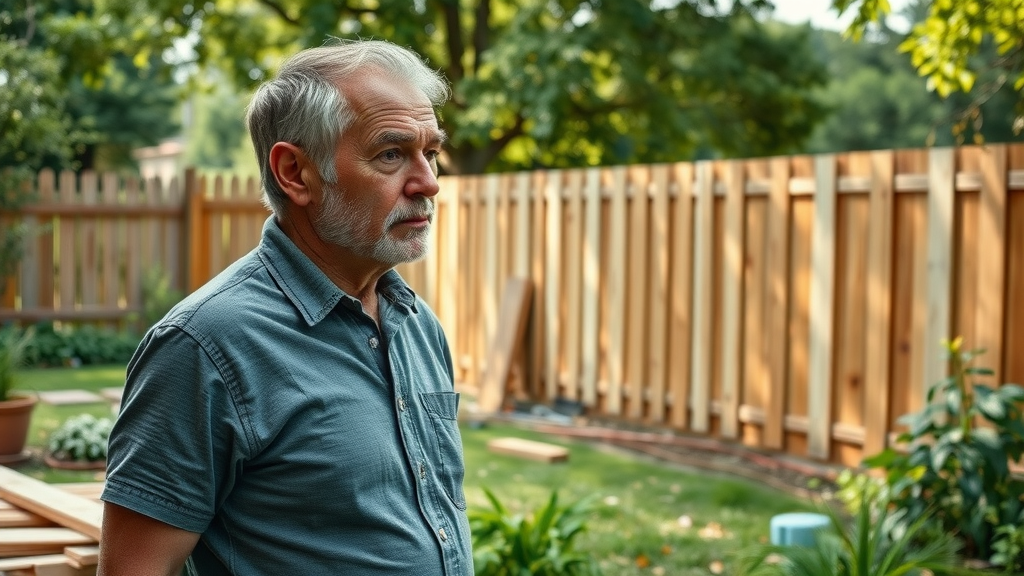
Unlock the Essentials: What You’ll Take Away From This Residential Fence Installation Resource
- Evaluate and compare privacy fence, chain link, wood fence, and vinyl fencing options
- Understand the residential fence installation process step-by-step
- Get actionable tips for choosing a reliable fence contractor
- Receive straightforward cost breakdowns for fence installation services
- Discover real customer testimonials and common FAQs
Why Residential Fence Installation is a Smart Investment for Homeowners
Boost Your Home’s Value and Security With Quality Fence Installation
A well-executed residential fence installation doesn’t just mark boundaries—it’s a strategic investment in your property’s security and overall appeal. Modern privacy fence designs, sturdy chain link, and elegant wood fence builds instantly elevate your backyard comfort while deterring unwanted visitors. Studies show that adding a quality fence can increase your home’s value by up to 10%, directly influencing its marketability and buyer interest. Plus, with local fence contractors proficient in the latest installation service techniques, you can rest easy knowing your investment is both robust and compliant with community guidelines.
Beyond monetary value, a thoughtfully planned fence installation service provides peace of mind. Privacy fencing offers a safe play area for children and pets, chain link is ideal for visible boundaries, and wooden and vinyl materials balance beauty with durable function. By choosing the right type of fence and skilled fence contractor, you ensure your fence project is more than just a home improvement—it’s a legacy asset benefiting everyone under your roof.
The True ROI of Upgrading With Privacy Fence and Modern Materials
When calculating the return on investment (ROI) of a residential fence installation , consider both immediate impact and long-term savings. For example, modern privacy fence and vinyl fencing require less maintenance than traditional wood fences, saving time and costs over years of use. Additionally, the sound dampening and privacy benefits of taller fences allow homeowners to enjoy quiet retreats in urban neighborhoods. With products and services evolving, today’s affordable chain link options also offer improved aesthetics and durability, extending fence lifespan and value for families with pets or active backyards.
Ultimately, upgrading your property with the right fence design is about more than initial curb appeal. It’s a calculated move to safeguard your family, improve neighborhood aesthetics, and reap tangible financial rewards. Choose your fence materials carefully, work with professional fence contractors, and you’ll realize a measurable boost in both comfort and resale price.
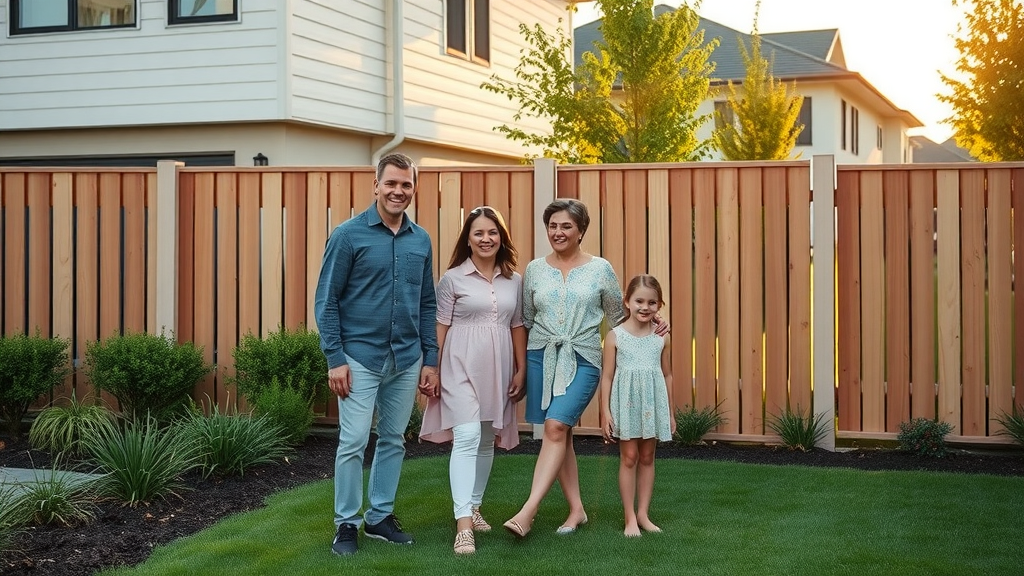
Exploring Fence Installation Services: From Free Estimate to Finished Project
What to Expect During a Professional Residential Fence Installation Service
Opting for professional fence installation services means a seamless and stress-free experience from start to finish. Reputable installation companies begin with a detailed consultation, assessing your property and fence height preferences to recommend the best type of fence—be it privacy, wood, vinyl, or chain link. The process includes site preparation, post hole digging, accurate measuring, and precise placement of fence posts . Contractors utilize advanced tools to ensure each fence post is secure and perfectly aligned, maximizing stability and longevity.
Throughout the installation service, you’ll receive regular updates on project milestones, with adjustments made based on real-time site challenges like slopes or uneven terrain. The final stages involve attaching fence panels, final inspection, and site clean-up. Quality fence contractors always prioritize customer service, answering your questions and ensuring total satisfaction with the completed project. Working with experienced pros, you sidestep costly pitfalls that often plague DIY fence builds—protecting both your investment and your peace of mind.
Why Work With a Licensed Fence Contractor for Installation Services?
Choosing a licensed fence contractor is the single most important decision in a successful residential fence installation. Professionals bring a wealth of experience and local knowledge, understanding critical aspects like property boundaries, zoning laws, and HOA regulations affecting fence design and placement. A qualified contractor also carries insurance and bonding, covering any accidental damage and safeguarding your investment throughout the fence build process. Licensing requirements are rigorous for quality fence installation services, offering additional assurance that the job will be completed to high standards.
Beyond credentials, top fence contractors stand by their work with warranties on both labor and materials. Their installation services include robust project management—scheduling, material sourcing, and timely execution—helping you avoid hidden costs and delays. Before hiring, always verify your fence contractor’s credentials and read recent customer reviews to confirm their reputation for reliable, courteous, and skilled work. In the evolving world of products and services, this diligence ensures your fence installation is built to last.
How a Free Estimate Can Simplify Residential Fence Installation Decisions
Requesting a free estimate is a critical first step toward a successful fence installation. Top installation companies will visit your property, offer personalized recommendations based on your needs, and provide a detailed written estimate outlining materials, timeline, and total costs. This transparency empowers you to compare options and choose the best type of fence—privacy, chain link, wood, or vinyl—without pressure. Free estimates reveal cost-saving opportunities, highlight value-add services, and clarify what’s included (for example, debris removal or extended warranties).
A comprehensive free estimate can also reveal hidden costs such as extra labor for rocky soil, removal of an old fence, or custom features like gates. That’s why it’s wise to consult multiple fence contractors and review several free estimates. This not only helps you identify competitive pricing on fence installation services but also allows you to gauge each contractor’s customer service responsiveness and overall expertise in the fence build process.
Comparing Materials: Privacy Fence, Chain Link Fence, Wood Fence, and Vinyl Fencing
| Material | Durability | Maintenance | Average Cost/ft | Best For |
|---|---|---|---|---|
| Privacy Fence | High | Medium | $20–$40 | Security, Noise Reduction |
| Chain Link Fence | Medium-High | Low | $7–$12 | Affordability, Pets |
| Wood Fence | Medium | High | $15–$30 | Style, Customization |
| Vinyl Fence | High | Low | $20–$35 | Low Maintenance |
- Privacy fence advantages for families and pets
- Chain link fence: strong, budget-friendly option
- Wood fence: timeless appeal and custom designs
- Vinyl fencing: modern, easy to maintain material
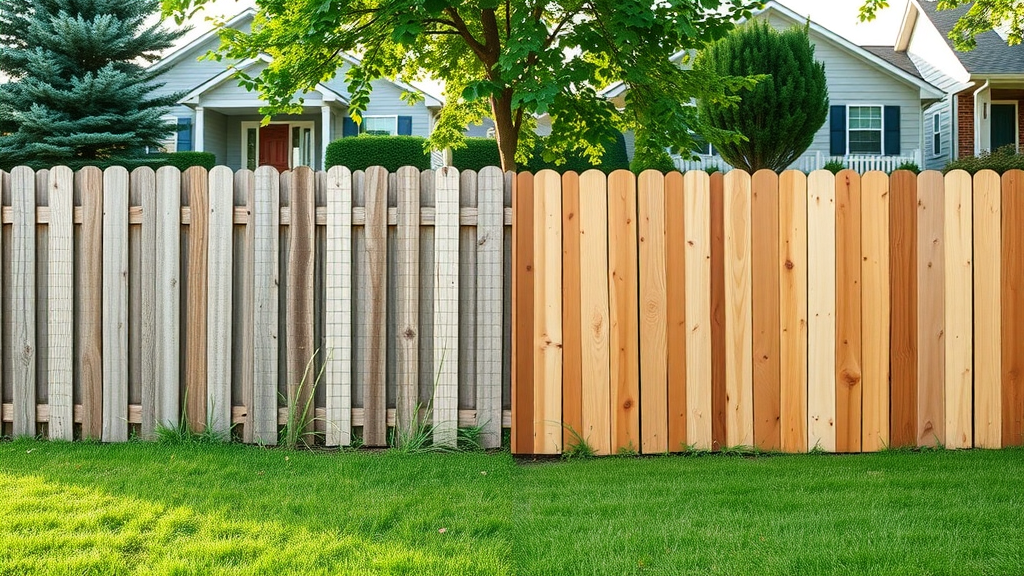
Step-By-Step Residential Fence Installation Process: What Every Homeowner Should Know
Preparation and Measuring: Fence Posts Placement
Every successful residential fence installation starts with careful planning and measuring. Fence contractors use batter boards and string lines to mark the boundaries and layout for the fence run, ensuring accuracy in fence post placement. Selecting the right location for each fence post is crucial for stability and longevity, whether building a wood fence, vinyl fencing, or a sturdy chain link boundary. This stage often involves double-checking property lines and accommodating any required setbacks to comply with zoning regulations.
Preparation also includes considering the type of fence material and the intended fence height. For example, shorter fences suit decorative front yards, while taller privacy fences add seclusion for backyards. Accurate measurements ensure that each fence post is evenly spaced and that panels fit snugly, streamlining the installation service and avoiding costly rework later on.
Digging, Leveling, and Setting Fence Posts
With the layout established, it’s time to dig post holes—a pivotal step in any fence installation service. Contractors typically use augers or manual post hole diggers to achieve the proper depth, which varies based on fence type, local frost lines, and overall fence height. Fence posts are then placed and set with concrete, ensuring they’re plumb and level to prevent leaning or shifting over time. This process is vital for all types of fence: wood fence, privacy fence, vinyl fencing, and especially chain link fences, which rely on taut, well-anchored lines.
Leveling is checked at every stage, with adjustments made before the concrete cures. The right foundation means panels or links will be straight and true, contributing not only to the fence’s function but also to its curb appeal. Care and precision in this phase ensure the finished product stands strong against the elements and daily wear.

Attaching Panels: Installation for Wood Fence, Chain Link, and Vinyl Fencing
Once fence posts are securely set, the real transformation happens—attaching fence panels. For a traditional wood fence , panels are aligned with posts and secured using exterior screws or nails, allowing for custom designs and decorative elements. Privacy fences use overlapping or tongue-and-groove panels to block sight and noise. Chain link fence installation involves stretching wire mesh between posts and securing with tension bands, while vinyl fencing panels are precision-fit and locked into place with interlocking tabs.
During this phase of fence installation services, contractors carefully maintain consistent fence height and straight lines. Skilled installers ensure gates are properly installed, latches are secure, and hardware is rust-resistant for long-lasting durability. Proper attachment not only maximizes security but also guarantees your fence design delivers visual appeal from every angle.
Final Inspection and Clean-Up: Ensuring a Lasting Residential Fence Installation
The last phase in residential fence installation is all about quality assurance. Your installation service should include a thorough walkthrough, checking each fence post for stability, making sure all hardware is tightened, and verifying panel alignment. Contractors also ensure the finished product meets both customer expectations and local regulations on type of fence, fence height, and materials used. Any debris—soil, leftover materials, or packaging—is cleaned up so your yard looks pristine and new.
Final sign-off confirms satisfaction and triggers the warranty for workmanship and materials, which reputable fence contractors always offer. High-quality installation services will always put a premium on a clean, safe, and attractive site—giving your new fence project the best possible start.
How To Choose the Best Fence Contractor for Residential Fence Installation
- Verify credentials, licensing, and insurance
- Read reviews and request references
- Compare free estimates from multiple fence contractors
- Discuss fence installation timeline and warranty
"A great fence contractor will guide you through every step, ensuring your residential fence installation is both efficient and durable."
Costs and Pricing: How Much Does Residential Fence Installation Really Cost?
Explaining Cost Factors for Different Fence Installation Services
Determining the cost of residential fence installation depends on several variables: type of fence, materials, length, height, local labor rates, and site challenges like slopes or utility lines. Privacy fence installations, for instance, cost more due to the height and added materials for sound and sight blockage. Wood fence and vinyl fencing prices fluctuate based on wood species or vinyl grade, while chain link fence remains the most budget-friendly. Additional costs may include custom gates, removal of an old fence, and permits required by local jurisdictions.
Many fence contractors provide installation services with pricing by the linear foot, factoring in all hardware, cement, and cleanup. For the most accurate estimate, always request a free estimate that breaks out labor, materials, and any extras. Ask if the fence installation service includes warranty coverage and post-installation customer service.
Average Price Guide for Privacy Fence, Chain Link Fence, Vinyl Fencing, and Wood Fence
Here’s a general breakdown of average costs you can expect for common residential fence installation options:
- Privacy fence: $20–$40 per ft
- Chain link fence: $7–$12 per ft
- Wood fence: $15–$30 per ft
- Vinyl fencing: $20–$35 per ft
For a 100-ft fence, this means spending anywhere from $700 for basic chain link to $4,000 for top-tier privacy fence depending on design complexity and material upgrades. Always consult a local fence contractor for the most accurate residential fence installation estimate tailored to your property’s needs and style preferences.

Watch this expert-guided demonstration as professional fence contractors walk through every phase of residential fence installation—from site prep and measuring, to post setting, panel attachment, and the final walk-through document.
People Also Ask: How much does it cost to have a fence installed?
Exploring Fence Installation Costs for Homeowners
The price for having a fence installed on residential property typically ranges from $1,500 to $8,000 for standard lengths and materials. Costs depend on the type of fence (privacy, chain link, wood, vinyl), total length, and complexity of the site. Privacy fences and vinyl fencing are on the higher end, while chain link and basic wood fence installations come in lower. Always factor in local labor rates and potential extras like gates or old fence removal when reviewing free estimates from multiple fence contractors.
People Also Ask: How much does 200 ft of fencing cost?
200 ft Fence Installation Cost Breakdown by Material
For a standard 200 ft fence installation:
- Chain Link Fence: $1,400–$2,400
- Wood Fence: $3,000–$6,000 (depending on wood type and custom features)
- Vinyl Fencing: $4,000–$7,000
- Privacy Fence: $4,000–$8,000 (premium designs or taller options on the higher end)
Material quality, local labor, and site prep can all impact your final cost. Always request a free estimate and discuss potential add-ons with your installation service provider for complete pricing clarity.
FAQs on Residential Fence Installation Services
-
How long does residential fence installation take?
Most fence installations for standard yards take 2–4 days, depending on the fence length, material, and complexity. Weather delays or custom designs may extend the timeline slightly. -
Can I install a privacy fence or vinyl fencing myself?
DIY installation is possible for small stretches of fence, but professional installation services ensure structural integrity and code compliance—especially for privacy fence and vinyl fencing that require precise leveling and specialty equipment. -
What should I ask my fence contractor before hiring?
Inquire about licensing and insurance, project timeline, warranty terms, experience with your preferred type of fence, and whether they handle permits and inspections. Always request references or examples of previous fence projects. -
Will my new fence increase my property value?
Yes! A well-built fence installation adds curb appeal, security, and functionality, making it a sought-after feature for future buyers and increasing your home’s market value.
Video Guide: Hiring a Fence Contractor and Free Estimate Tips
Discover how to evaluate and hire the best local fence contractor. This quick video explains what to expect during a free estimate, the right questions to ask, and how to identify true installation service pros for your next fence build.
Expert Tips for Maximizing the Value From Your Residential Fence Installation
- Choose quality materials for longer lifespan
- Work with qualified fence contractors offering warranty
- Consider your neighborhood and zoning requirements
- Request a free estimate for full pricing clarity
Need Reliable Residential Fence Installation? Request Your Free Estimate From Local Professionals Today!
Ready to renovate your outdoor space? Connect with trusted fence contractors near you for a no-pressure, free estimate and unlock the perfect privacy, chain link, wood fence, or vinyl fencing for your property. With expert guidance and transparent pricing, your dream residential fence installation is just one call away—act now to secure your home, family, and peace of mind!
 Add Row
Add Row  Add
Add 


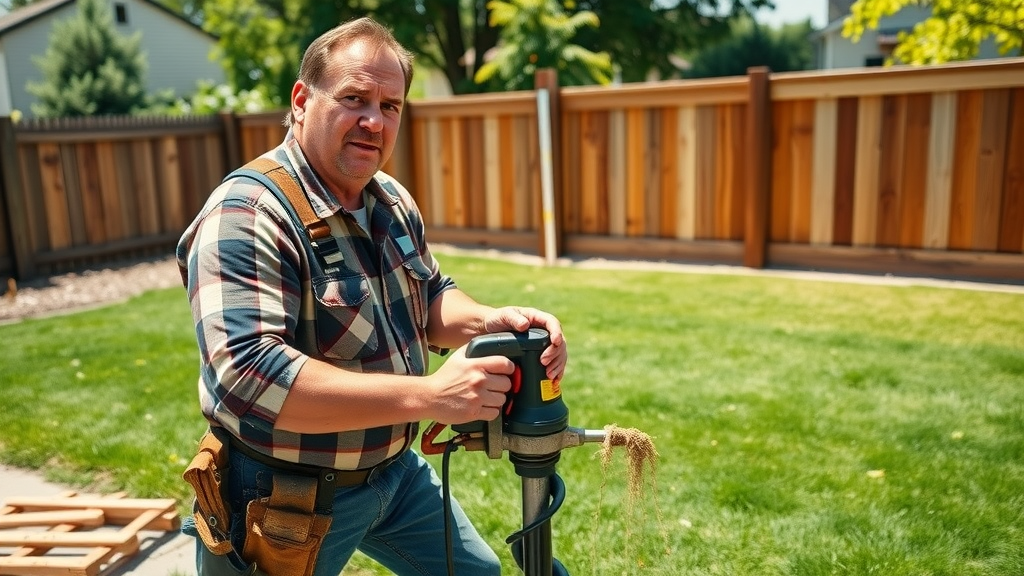
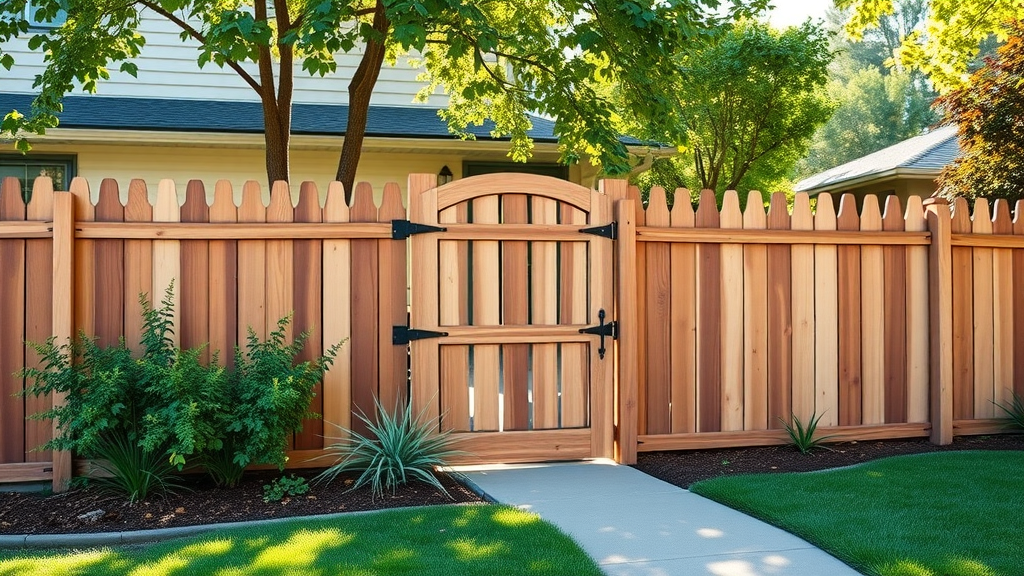
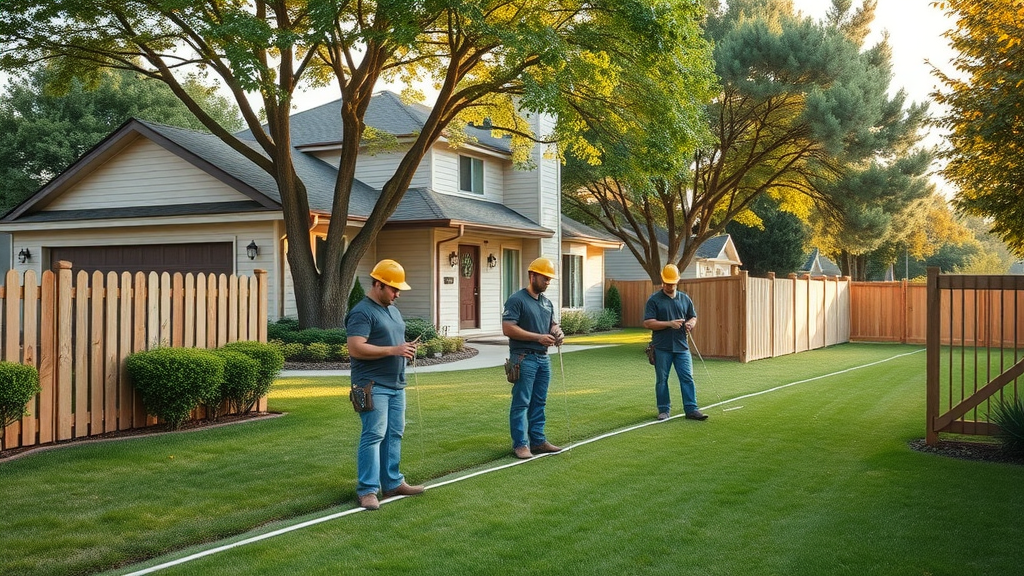
Write A Comment